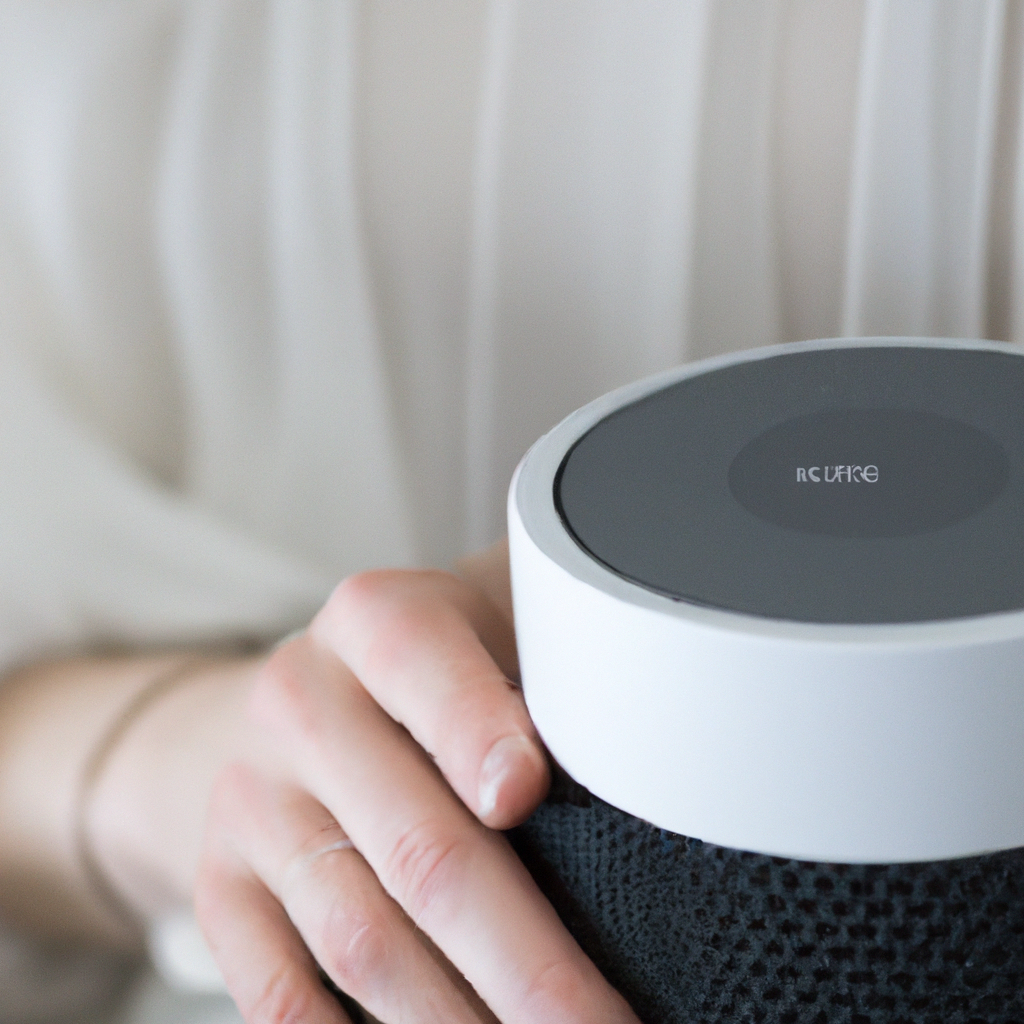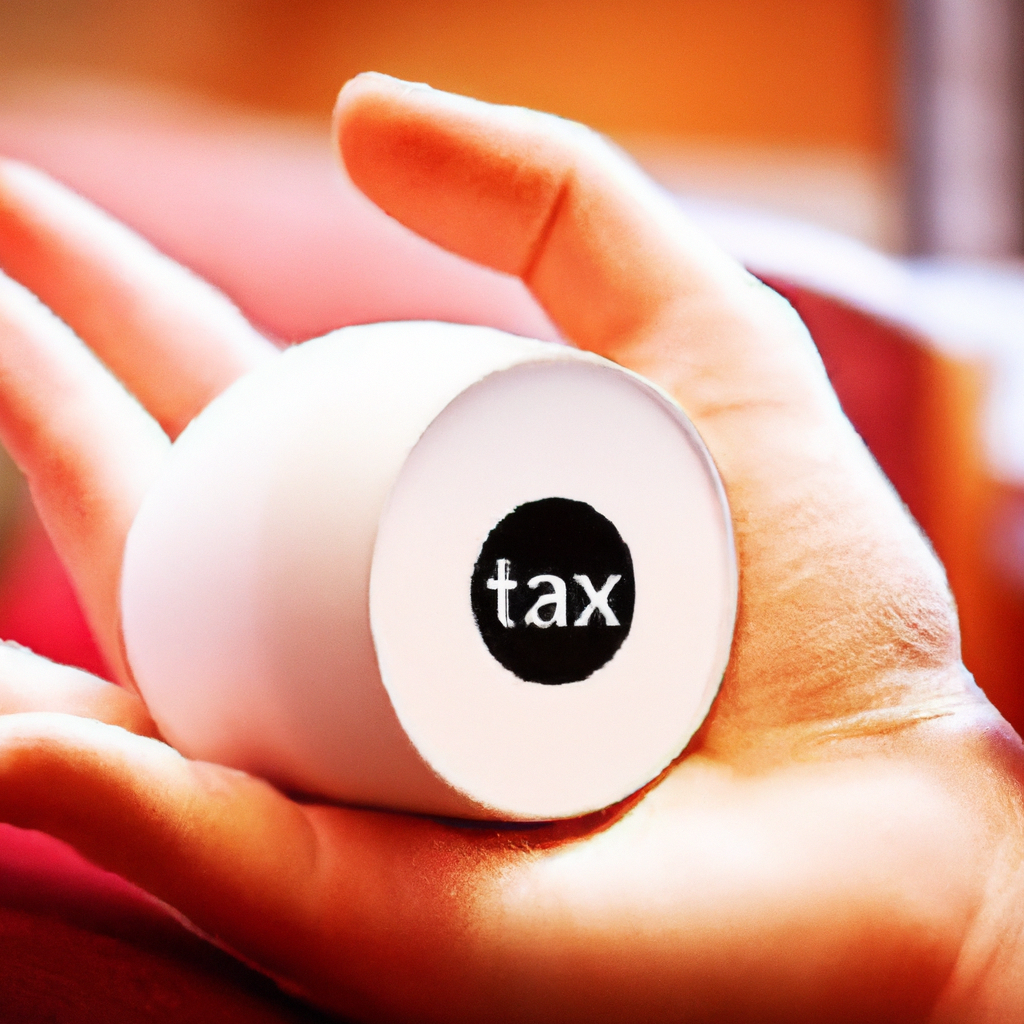Imagine having a helpful voice assistant by your side in the comfort of your living room, ready to respond to your every command. From playing your favorite music to answering questions and controlling your smart devices, voice assistants have become an integral part of our daily lives. But have you ever wondered about the potential privacy implications of having one of these digital companions in such an intimate space? In this article, we will explore the privacy concerns that come with using voice assistants in the living room and discuss what you can do to protect your personal information. So, grab a cozy seat and let’s delve into the world of voice assistant privacy.

Privacy Concerns with Voice Assistants
Voice assistants are becoming increasingly popular and pervasive in our daily lives, making tasks more convenient and efficient. However, with this convenience comes a range of privacy concerns that users need to be aware of. In this article, we will discuss the various privacy implications of using voice assistants, such as recording and collecting data, potential security breaches, data sharing and storage, data usage and targeted advertising, invasion of privacy, legislation and regulation, mitigating privacy risks, user awareness and education, balancing convenience and privacy, the role of manufacturers and developers, and the future of voice assistants. By gaining a deeper understanding of these concerns and adopting responsible usage practices, users can make informed decisions regarding their privacy.
Recording and Collecting Data
One of the main privacy concerns with voice assistants is the recording and collecting of user data. Voice assistants, such as Amazon’s Alexa, Apple’s Siri, Google Assistant, and Microsoft’s Cortana, often need to constantly listen to their surroundings in order to respond to voice commands. This means that conversations held in the vicinity of these voice assistants may be recorded and stored.
While these voice recordings are primarily used for improving the performance and accuracy of the voice assistants by analyzing user interactions, there is a potential for these recordings to be accessed and misused by unauthorized individuals or organizations. It is essential for users to understand the extent to which their voice interactions are being recorded and stored, and to carefully consider the risks associated with this data collection and potential misuse.
Understanding Natural Language
In order to provide accurate and helpful responses, voice assistants need to analyze and understand natural language. This involves processing and interpreting voice commands or queries, which, in turn, necessitates the transmission and analysis of user data. This process raises concerns about how this data is being used, stored, and shared.
Users should be aware that their voice interactions are being transmitted to remote servers for processing. While this may raise concerns about the security and privacy of user data, voice assistant companies have implemented measures to protect user privacy, such as encrypting voice data during transmission and using anonymous identifiers instead of personally identifiable information. However, it is important for users to remain vigilant and informed about the privacy practices of the voice assistant companies they choose to interact with.
Potential Security Breaches
Another significant privacy concern with voice assistants is the potential for security breaches that could compromise user data. As voice assistants are connected devices, they are vulnerable to cyberattacks and unauthorized access. Breaches could result in sensitive voice recordings, personal information, or even home automation control being accessed or exploited.
To mitigate this risk, voice assistant manufacturers and developers must implement robust security measures, such as encryption protocols, frequent software updates, and strong authentication mechanisms. Likewise, users should ensure they are regularly updating the firmware of their voice assistant devices and follow best practices, such as using strong and unique passwords, to enhance the security of their voice assistant systems.
Data Sharing and Storage
Cloud Storage
Voice assistants usually rely on cloud storage for storing user data and voice interactions. This raises concerns about the security, privacy, and accessibility of this stored data. While cloud storage allows for convenient access to user data across multiple devices and locations, it also introduces the risk of unauthorized access or data breaches if not adequately protected.
Users should carefully review the privacy and data storage policies of the voice assistant providers they choose to use. It is important to understand where and how user data is stored, as well as the security measures in place to protect this data from unauthorized access.
Third-Party Sharing
Many voice assistant platforms offer integration and compatibility with third-party services and applications. While this enhances the functionality and capabilities of voice assistants, it also raises concerns about the sharing of user data with these third-party entities.
Users should exercise caution when granting permissions and authorizations to third-party apps and services. It is essential to review the privacy policies and permissions requested by these third parties before granting access to personal data or voice recordings. By being selective and mindful about the apps and services used in conjunction with voice assistants, users can better protect their privacy.
Data Retention
The retention of user data by voice assistant platforms is another significant privacy concern. Voice recordings and user data may be stored for prolonged periods of time, even after they have served their initial purpose. This could mean a long-term accumulation of personal data that may potentially be vulnerable to unauthorized access or breaches.
Users should have the ability to determine the retention period of their data and have the option to delete their voice recordings and interactions whenever desired. Transparent data retention policies and clear guidelines for data deletion and user control should be established by voice assistant manufacturers and service providers to promote user privacy and control over their data.

Data Usage and Targeted Advertising
Listening for Keywords
One of the primary functions of voice assistants is to listen and analyze voice commands or queries for the purpose of providing relevant information or performing requested actions. This process involves the detection and recognition of specific keywords or phrases.
While this functionality enhances the convenience and usability of voice assistants, it also raises concerns about privacy and targeted advertising. Voice assistants are constantly listening, even when not actively engaged in a conversation, in order to detect these keywords. This means that conversations held in the vicinity of voice assistants may inadvertently trigger certain actions or influence the advertisements displayed to users.
Users should be aware that voice assistants are constantly listening and potentially capturing keywords or phrases that may be used for targeted advertising purposes. It is important to consider the potential consequences of this data usage and to explore the privacy settings and controls offered by the voice assistant platforms to limit targeted advertising.
Personalized Recommendations
Voice assistants often offer personalized recommendations based on user preferences, habits, and previous interactions. While these recommendations can enhance user experiences and provide valuable suggestions, they also rely on the analysis and utilization of user data.
Users should be mindful of the types of data being used to generate these recommendations and consider the potential implications on their privacy. It is advisable to review and modify the privacy settings and controls provided by voice assistant platforms to limit the usage of personal data for personalized recommendations.
Invasion of Privacy
Accidental Activation
Voice assistants may occasionally activate unintentionally due to false wake words or similar-sounding phrases. This can result in conversations being recorded without the user’s knowledge or consent, posing a potential invasion of privacy.
Users should be aware of the possibility of accidental activations and be cautious when discussing sensitive topics or sharing personal information in the presence of voice assistants. It is important to regularly review and adjust the sensitivity settings of voice assistants to minimize the chances of accidental activations.
Unintended Eavesdropping
As voice assistants are constantly listening for voice commands, they may unintentionally capture and analyze conversations or sounds in their surroundings, even when not actively engaged in a conversation. This unintended eavesdropping poses a privacy risk, as sensitive or private conversations may be recorded and potentially accessed or misused.
Users should consider the placement of their voice assistant devices and be mindful of their surroundings when discussing sensitive or personal matters. It is recommended to review and adjust the privacy settings and controls offered by voice assistant platforms to minimize unintended eavesdropping.
Voice Profiling
Voice assistants collect extensive voice data to improve their performance and accuracy. This includes data on voice characteristics, dialect, and speech patterns, which can be used to create voice profiles. Voice profiling raises concerns about the potential identification and tracking of individuals based on their voice.
Users should be aware that their voice data may be used for voice profiling and potentially linked to their personal information. It is essential to review the privacy policies and terms of service provided by voice assistant platforms to understand how voice profiling is conducted and to what extent it may impact user privacy.

Legislation and Regulation
Current Laws and Regulations
As the use of voice assistants continues to grow, lawmakers and regulatory bodies are grappling with the challenges surrounding privacy and data protection. Existing laws and regulations may vary across jurisdictions and often struggle to keep pace with rapidly evolving technologies.
Users should familiarize themselves with the applicable laws and regulations in their specific jurisdiction in order to understand their rights and the privacy obligations of voice assistant manufacturers and service providers. Staying informed about any updates or amendments to privacy laws can help users navigate the legal landscape surrounding voice assistant usage.
Privacy Frameworks
In addition to laws and regulations, privacy frameworks and industry standards have emerged to address the privacy concerns associated with voice assistant technologies. These frameworks provide guidance and best practices to manufacturers and developers in order to enhance user privacy and security.
Users should be aware of the privacy frameworks or certifications adopted by voice assistant manufacturers and service providers. Privacy frameworks, such as the General Data Protection Regulation (GDPR) in the European Union, aim to protect user data and provide individuals with greater control over their personal information. Understanding these frameworks can assist users in making informed decisions regarding the privacy practices of voice assistant platforms.
Potential Future Policies
With the continuous development of voice assistant technologies and the increasing awareness of privacy risks, it is likely that additional policies and regulations will be introduced in the future. These policies may help address emerging privacy concerns and establish clearer guidelines for manufacturers and service providers.
Users should stay informed about the potential future policies and regulations that may impact the privacy landscape of voice assistants. By keeping up-to-date with the evolving regulatory environment, users can proactively protect their privacy and advocate for stronger privacy protections.
Mitigating Privacy Risks
Privacy Settings and Controls
Voice assistant platforms often provide users with privacy settings and controls that allow for customization and management of data sharing and privacy preferences. These settings and controls can help users mitigate privacy risks and enhance their control over their personal information.
Users should take advantage of the privacy settings and controls offered by voice assistant platforms. This may include adjusting the sensitivity of voice activation, disabling or limiting data sharing with third-party apps, and choosing the level of personalized recommendations. Regularly reviewing and modifying these settings can help users strike a balance between convenience and privacy.
Opt-out Policies
Voice assistant manufacturers and service providers should offer clear and accessible opt-out policies that allow users to decline or withdraw their consent for certain data sharing or usage. These opt-out policies enable users to exercise their rights and have greater control over their personal information.
Users should familiarize themselves with the opt-out policies provided by voice assistant platforms. By understanding these policies and exercising their right to opt-out, users can limit the collection, storage, and usage of their personal data.
Transparency and Consent
Transparency and informed consent are vital components of protecting user privacy. Voice assistant manufacturers and service providers should prioritize transparency by clearly communicating their data collection, storage, and usage practices. They should obtain explicit consent from users before collecting or using their personal data.
Users should review the privacy policies and terms of service provided by voice assistant platforms to understand the extent and purposes for which their personal data is collected and used. By making informed decisions and providing consent based on this understanding, users can actively participate in safeguarding their privacy.

User Awareness and Education
Knowing the Risks
Users need to be aware of the privacy risks associated with voice assistant usage. Understanding the potential data collection, storage, and usage practices, as well as the security vulnerabilities, can help users make informed decisions and take appropriate measures to protect their privacy.
Users should educate themselves about the privacy implications of using voice assistants by reading relevant articles, user guides, and privacy policies. By staying informed, users can make conscious choices and actively manage their privacy settings and preferences.
Safety Measures
In addition to understanding the privacy risks, users should also adopt safety measures to protect their privacy when using voice assistants. This includes being cautious about the information shared in the presence of voice assistants, using secure and unique passwords for voice assistant accounts, and regularly updating the firmware of voice assistant devices.
Users should also consider using virtual private networks (VPNs) to encrypt their internet traffic and enhance the privacy and security of their voice assistant interactions. By implementing these safety measures, users can minimize potential privacy risks and ensure a safer voice assistant experience.
Responsible Usage
Responsible usage is crucial in protecting privacy when interacting with voice assistants. Users should exercise discretion when discussing sensitive or personal matters in the presence of voice assistants and be mindful of the potential unintended consequences of their voice interactions.
Users should also be cautious about the apps and services they grant access to their voice assistant devices. By carefully reviewing the permissions and privacy policies of third-party apps and services, users can minimize the chances of their personal data being shared or misused.
Balancing Convenience and Privacy
Finding the Right Balance
Finding the right balance between convenience and privacy is a personal decision for each user. While voice assistants offer numerous conveniences, such as hands-free operation and quick access to information, users must also consider the potential privacy implications.
Users should evaluate the trade-offs between convenience and privacy and assess their personal comfort level with the data collection and usage practices of voice assistant platforms. By finding the right balance, users can enjoy the benefits of voice assistants while preserving their privacy to the extent desired.
Trade-offs
Using voice assistants often involves trade-offs between the convenience of voice activation and the potential privacy risks associated with constant listening and recording. Users must weigh the benefits of seamless voice interactions against the potential intrusion into their private lives.
Users should make informed decisions about voice assistant usage by considering the specific features and functionalities that are important to them. By understanding the trade-offs, users can determine the extent to which they are willing to compromise their privacy for the convenience offered by voice assistants.
Choosing Voice Assistant Brands
Different voice assistant brands and platforms may have varying approaches to privacy and data protection. Users should research and compare the privacy practices of different voice assistant brands before making a decision.
Users should consider factors such as the transparency of data collection and storage practices, the robustness of security measures, the availability of privacy controls, and the reputation of the voice assistant manufacturer or service provider. By selecting a trusted voice assistant brand, users can have greater confidence in the privacy protections offered.

The Role of Manufacturers and Developers
Privacy by Design
Voice assistant manufacturers and developers should prioritize privacy by incorporating privacy principles into the design and development of their products and services. Privacy by design involves considering privacy implications from the early stages of product development and implementing privacy-enhancing features and functionalities.
Manufacturers and developers should adopt privacy-focused measures, such as incorporating strong encryption protocols, minimizing data collection and storage, providing transparent privacy policies, and offering robust privacy controls. By prioritizing privacy by design, manufacturers and developers can foster user trust and confidence in their voice assistant products.
Data Encryption
Data encryption is a critical component of protecting user privacy when using voice assistants. Manufacturers and developers should implement strong encryption protocols to ensure that user data is securely transmitted and stored.
Users should verify that voice assistant platforms utilize encryption algorithms and protocols, such as Transport Layer Security (TLS), to protect their voice recordings and personal data. By encrypting user data during transmission and storage, manufacturers and developers can enhance user privacy and minimize the risk of unauthorized access to sensitive information.
Data Handling Policies
Voice assistant manufacturers and service providers should establish clear and comprehensive data handling policies that outline how user data is collected, stored, used, and shared. These policies should be easily accessible and transparent to users.
Users should review and understand the data handling policies provided by voice assistant platforms before engaging with their services. Manufacturers and service providers should commit to data minimization practices to only collect and retain the necessary user data, as well as to obtain explicit consent for data collection and usage. By adopting responsible data handling policies, manufacturers and developers can demonstrate their commitment to user privacy.
The Future of Voice Assistants
Technological Advancements
The future of voice assistants holds promise for improved technologies and features that prioritize user privacy. Advancements in natural language processing, context understanding, and machine learning can enhance voice assistants’ ability to respond accurately while minimizing unnecessary data collection.
Users should stay informed about emerging technologies and developments in voice assistant technologies. By being proactive and seeking out privacy-focused advancements, users can expect an improved and more secure voice assistant experience in the future.
Improved Privacy Features
In response to growing privacy concerns, voice assistant manufacturers and service providers are likely to continue implementing improved privacy features and controls. These features may include more granular consent options, enhanced data deletion capabilities, and increased transparency regarding data usage.
Users should monitor updates and new releases from voice assistant platforms to ensure they are taking advantage of the latest privacy features. By keeping up with advancements, users can maintain greater control over their privacy and shape the future direction of voice assistant technologies.
Ethical Considerations
As voice assistants become more advanced and integrated into our lives, ethical considerations surrounding privacy and data collection become increasingly important. Manufacturers and developers should prioritize ethical practices by considering the implications of their technologies on user privacy, security, and well-being.
Users should actively engage in discussions and advocate for ethical considerations in voice assistant technologies. By being mindful of the ethical implications and demanding responsible practices from voice assistant manufacturers and developers, users can contribute to the development of more privacy-conscious voice assistant technologies.
In conclusion, the use of voice assistants offers numerous conveniences, but it also raises important privacy concerns. Users need to be aware of the potential privacy implications, including data recording and collection, security breaches, data sharing and storage, data usage and targeted advertising, invasion of privacy, legislation and regulation, and more. By understanding these concerns, users can make informed decisions, adopt privacy settings and controls, and advocate for stronger privacy protections. With responsible usage, user awareness, and the commitment of manufacturers and developers to prioritize privacy, voice assistants can continue to evolve in a manner that respects and safeguards user privacy.
